
Inflammatory coagulation pathway activator positive extracellular vesicles were significantly increased in women with a history of severe preeclampsia compared with controls and those with milder cases.

Inflammatory coagulation pathway activator positive extracellular vesicles were significantly increased in women with a history of severe preeclampsia compared with controls and those with milder cases.

The neurologist at Cleveland Clinic’s Lou Ruvo Center for Brain Health detailed new findings on whether initial cognitive symptoms have similar rates of functional decline across a handful of neurodegenerative disorders. [WATCH TIME: 3 minutes]

In addition to significant associations between executive memory and cognition, baseline neurofilament light levels and age trended toward significance.

The chief medical officer and cofounder of Linus Health provided background on the reasoning for the measures used in a new machine learning algorithm that classifies cognitive status. [WATCH TIME: 3 minutes]

During a Focused Topic Session at the 2022 Alzheimer’s Association International Conference, NeurologyLive® inquired with a panel of experts about the possibility of exploring a combination approach to Alzheimer disease as the future of treatment.

All severities of Alzheimer disease showed statistically significant benefits from the exercise program relative to controls, with more mild groups demonstrating the most improvement.

The monoclonal antibody that preferentially targets Aß oligomers failed to meet either of its coprimary end points—despite favorable results over the placebo group—in individuals who were unimpaired but at risk for AD.

Using several large-scale cohorts, findings showed that cumulative incidence of Alzheimer disease grows faster with age in R145C variant carriers compared with noncarriers, contradicting prior research results.

The medical director of the Deanna and Sidney Wolk Center for Memory Health provided background on his new study using multimodal digital biomarkers to classify patients with mild cognitive impairment. [WATCH TIME: 5 minutes]

Across the cohort, 11.6% of patients had impairments in memory, attention, and executive function; however, cognitive status was influenced by severity of anosmia, or loss of taste and smell.

Non-White participants over 90 years of age who reported a mean of 4 discrimination experiences had significantly worse baseline semantic memory compared with those who reported little/no discrimination.
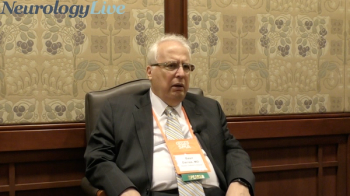
The associate neurologist-in-chief at Boston Children’s Hospital discussed the 4-copy conundrum and whether treatment decisions differ based on SMN2 copies for patients with spinal muscular atrophy. [WATCH TIME: 2 minutes]

A cohort of more than 2000 older Latin American individuals reported a significant difference in cognitive symptoms when they underwent a positive life change during the early phase of the COVID-19 pandemic.

As hospitalizations remain high throughout the COVID-19 pandemic, new data suggests that ICU hospitalization is associated with increased risk of Alzheimer disease and all-type dementia.

Test your neurology knowledge with NeurologyLive®'s weekly quiz series, featuring questions on a variety of clinical and historical neurology topics. This week's topic is the history of the Alzheimer's Association.
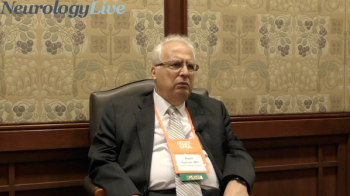
The associate neurologist-in-chief at Boston Children’s Hospital provided insight on the treatment decisions clinicians make for patients with SMA and the challenges with improving optimization. [WATCH TIME: 3 minutes]
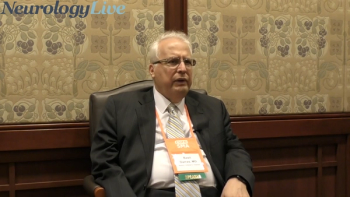
The associate neurologist-in-chief at Boston Children’s Hospital discussed the importance of defining and acting on spinal muscular atrophy in its presymptomatic stages. [WATCH TIME: 4 minutes]
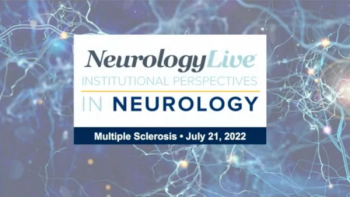
Chaired by Annette Okai, MD, of North Texas Institute of Neurology & Headache, the presentations also feature Fernando Cuascut, MD, MPH, of Baylor College of Medicine; and Lauren Tardo, MD, and Rebecca Romero, MD, of UT Southwestern Medical Center. [WATCH TIME: 1 hour, 18 minutes]

Test your neurology knowledge with NeurologyLive®'s weekly quiz series, featuring questions on a variety of clinical and historical neurology topics. This week's topic is headache and migraine.
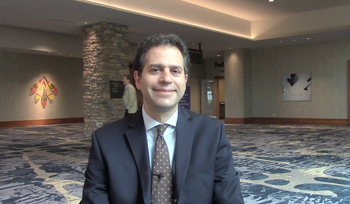
The neurologist at Weill Cornell Medicine and NewYork-Presbyterian Hospital offered his insight into the state of treatment for status migrainosus and whether or not the new migraine medications can help improve care. [WATCH TIME: 2 minutes]

Jill Farmer, DO, MPH, director of the Parkinson’s Disease and Movement Disorder Program at Global Neuroscience Institute, spoke at length about the recent ATMRD Congress, the state of care for movement disorders, and her hopes for the horizon of therapy and treatment.

The neurologist and movement disorders fellow at University Hospitals Cleveland Medical Center spoke about the need for clinicians to have more time with patients in clinical practice, particularly with those with chronic diseases. [WATCH TIME: 2 minutes]

Test your neurology knowledge with NeurologyLive®'s weekly quiz series, featuring questions on a variety of clinical and historical neurology topics. This week's topic is neuromuscular disorders.

The neurologist and movement disorders fellow at University Hospitals Cleveland Medical Center spoke about how his experience as a caregiver shapes his perspective as a doctor in care for those with movement disorders. [WATCH TIME: 3 minutes]

The director of the Montefiore Headache Center provided an overview of the recent advances in migraine medications and how it has translated to improved care. [WATCH TIME: 2 minutes]

The neurologist and movement disorders fellow at University Hospitals Cleveland Medical Center shared his experiences engaging with a diverse community of clinicians at the ATMRD Congress and in clinical practice. [WATCH TIME: 2 minutes]

The director of the Montefiore Headache Center provided commentary on how analyses presented at AHS 2022 further support the benefits intranasal zavagepant bring to the migraine treatment landscape. [WATCH TIME: 5 minutes]

The director of the Montefiore Headache Center provided insight on an open-label study presented at AHS 2022 that highlighted rimegepant’s (Nurtec ODT; Biohaven) impact both as a preventative and acute medication. [WATCH TIME: 5 minutes]

Test your neurology knowledge with NeurologyLive®'s weekly quiz series, featuring questions on a variety of clinical and historical neurology topics. This week's topic is stroke and cerebrovascular disease.

The director of the Montefiore Headache Center discussed the intuitiveness and advantages the Migraine Clinical Outcome Assessment System, or MiCOAS, grant provides to clinical trials and patients with migraine. [WATCH TIME: 5 minutes]